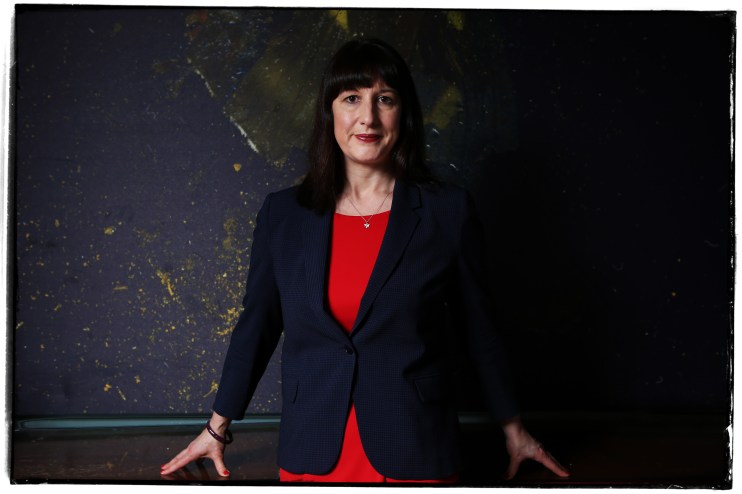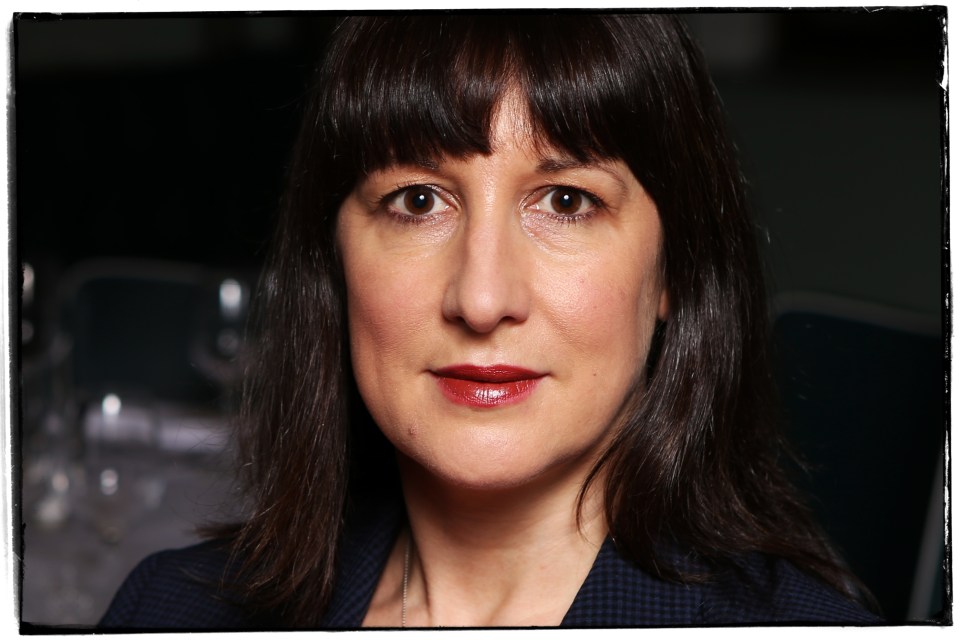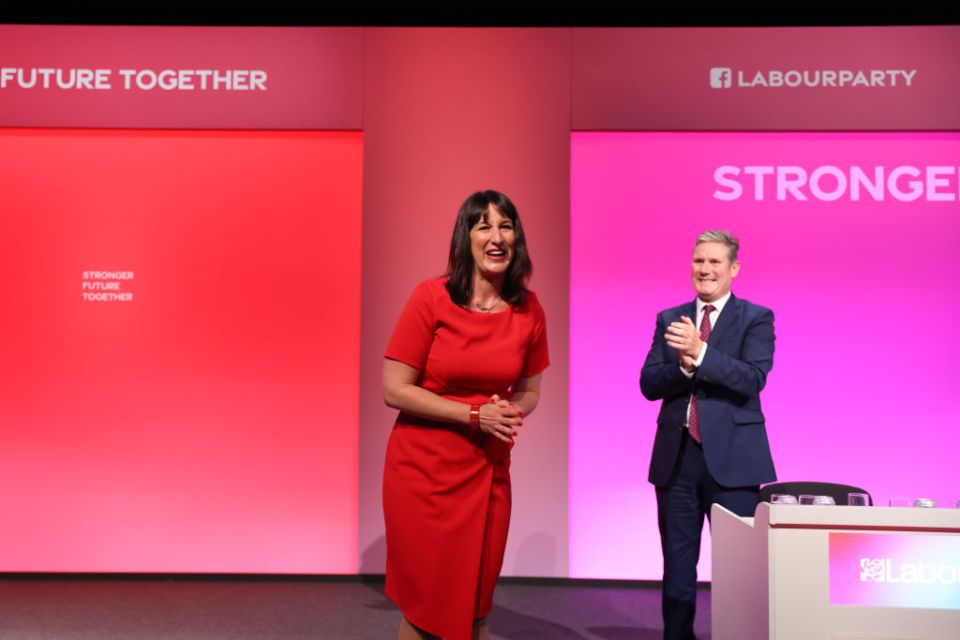One of our own: Rachel Reeves’ journey from the City to the top of Labour politics

Rachel Reeves looks comfortable in the palatial settings of 1 Lombard Street as she settles down to a gin and tonic, garnished with a slice of grapefruit. The shadow chancellor is is a formidable force in the House of Commons – a Labour staffer described her as “un-chill, but in a very good way” – but she is far more laid back and chatty in this environment.
Despite this, Reeves said she was always more used to the City’s dingy pubs than the swanky bars that dot the Square Mile.
“It’s changed a lot – there’s so much more money around here now,” she says.
The former Bank of England and HBOS economist is genuine when she talks about wanting to have a close relationship with the financial services sector – it’s personal for her.
“It’s really important to me, particularly because of my background. I worked across the road from where we are in banking and financial services for over a decade before I became an MP,” she says.
“I want to have good relations with all British businesses, including those parts where I got my early breaks.”
It’s the type of sentiment you would never hear from ex-shadow chancellor John McDonnell, who once said “Marx, Lenin and Trotsky” were his biggest intellectual influences. City figures say he instead took a didactic approach in meetings and would sermonise about the necessity for punitive taxation.
The difference between McDonnell and Reeves is neatly summed up when she is confronted with the question of whether she prefers Karl Marx or the father of capitalism Adam Smith.
“Oh god,” she groans.
“Adam Smith.”

Since becoming shadow chancellor in May, after taking over from Anneliese Dodds, Reeves has been on a mission to hammer home the message that Labour is a pro-business party. Her Labour party conference speech set out plans to slash business rates, spend £28bn a year on green infrastructure, boost British manufacturing and keep the City close to the EU post-Brexit.
Her main attack line on chancellor Rishi Sunak – who has announced plans to increase the tax burden to its highest level in seven decades – is that the Tories are “high tax, because they’re low growth”.
Does this mean she will be a low-tax chancellor, then?
“I think we’re too far away from an election to start setting out individual policies, but I think it’s been clear over the last six months with me as shadow chancellor about the sort of direction we are going in,” she says.
“The flagship policy I announced at our conference was a tax cut for businesses … I want us to be a party of wealth creation, of job creation.”
The thread of aspiration has become a key feature of Labour’s economic offering since she became shadow chancellor. Labour leader Sir Keir Starmer now also conspicuously uses the economic language of New Labour, writing in City A.M. recently that “when business profits, we all do”.
Reeves’ personal experience of social mobility could be used more as a rhetorical device when trying to appeal to aspirational working class voters. Her sixth form at a comprehensive school in Beckenham in South East London consisted of “two prefab huts in the playground”, with “never enough textbooks”.
An under-14 UK girls chess champion, she went on to study at Oxford and turned down a job offer at Goldman Sachs to instead work as an economist at the Bank of England. However, she is quick to slap down any notion that the social and economic conditions created by Margaret Thatcher contributed to her success.
“I was one of the lucky ones in my school,” she explains.
“Most girls in my school didn’t stay on until the sixth form. I had a lot of support at home, we had a lot of books at home, I was very driven.”
She laments that her two children have grown up so far only knowing Conservative governments, much like her own childhood and adolescence in the 1980s and 90s.
“At the time I was very angry with the Tories, I thought they were doing all the wrong things and actually later on I thought ‘where was the Labour party for 18 years’? And it’s the same today,” she says.
“I don’t want [my children] to reach adulthood before they see a Labour government. Whether or not that happens relies on me and Keir and Wes [Streeting] and Yvette [Cooper]. It’s quite exciting, but it’s also a massive responsibility.”
Speaking to her shadow cabinet colleagues paints a picture of someone who still has a Stakhanovite work ethic. One said she always seems to be a few steps ahead of everyone else, while another said she has by far the best economics brain in the Labour party.
One also said “Rachel swears quite a lot” – a suggestion that seems to come as a surprise to Reeves when put to her.

“Blimey! I don’t think I swear that much, but I do get fired up,” she says laughing.
“Who told you that?”
She then turned to her aide and joked: “Find them!”
All these apparent traits have an uncanny similarity to Labour’s last successful shadow chancellor – Gordon Brown. She even does quite a good impression of Brown, complete with a clunking fist at the end of it.
Stiffening her back, she says in a deep Scottish accent: “Prudence is really important Rachel, but it’s got to be for a purpose! You’ve got to have a purpose!”
Reeves, who says the Scot is her favourite Labour chancellor, is often in contact with Brown.
“Gordon has been very good to me over the years. With both Gordon and [Alastair] Darling I’ve had a very strong relationship,” she said.
Much like Brown, it is now up to Reeves to restore the party’s economic credibility in the City and beyond after years of electoral failure. Her impressive economic background and familiarity with the Square Mile should put her in good stead.
Quickfire round
Low taxes or high public spending? Tax fairly, spend wisely.
Controlled inflation or Full employment? You’ve got to have both, this is ridiculous! You can’t have one without the other.
Queen’s Gambit or Succession? Queen’s Gambit, but I do really like Succession. Now that is a lot of swearing!
Garry Kasparov or Bobby Fischer? Garry Kasparov. I really like him. Bobby Fischer’s awful. Oh my god, he’s like an antisemite. Gosh, don’t get me in trouble!
Leeds or Crystal Palace? Leeds.
Keynes or Hayek? Keynes
Karl Marx or Adam Smith? Oh god, Adam Smith.
Rishi Sunak or Liz Truss? Neither. Keir Starmer.
Tony or Gordon? Both.